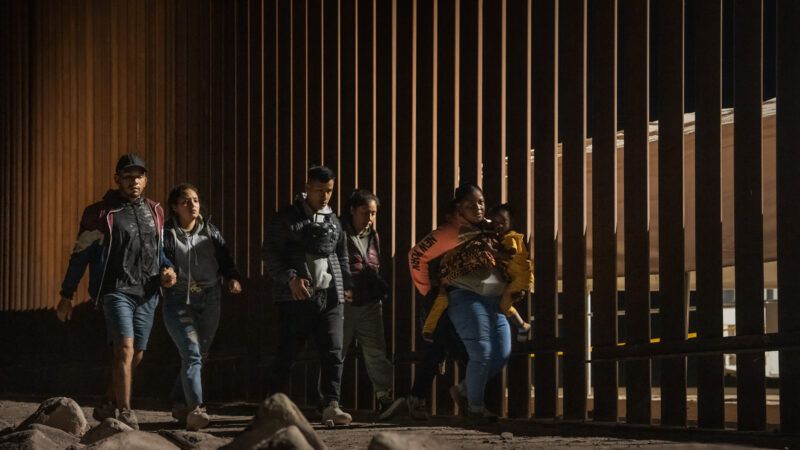Arizona Passes Immigration Crackdown Measure That Will Invite Unaccountable Policing
Proposition 314 will allow state and local police to enforce immigration law—and shield them from lawsuits over misconduct related to that enforcement.

Arizona voters have approved Proposition 314, which will increase the role of state and local law enforcement in immigration policy. Arizona joins a growing list of states that are venturing into the business of border enforcement, an authority that has traditionally fallen under the federal government's purview—and it will likely see increased taxpayer costs and police misconduct as a result.
Proposition 314 makes unauthorized border crossing a state crime, granting local and state law enforcement the power to arrest and deport migrants. A migrant who crosses into Arizona outside of a lawful port of entry will be guilty of a class 1 misdemeanor (or a class 6 felony for repeat offenses). A state judge will be able to order a migrant's deportation. Other components of the initiative increase or introduce penalties for the sale of deadly fentanyl and the use of false documentation to apply for public benefits.
A similar proposal passed the Arizona Legislature earlier this year, but Democratic Gov. Katie Hobbs vetoed it. That bill, and Proposition 314, were modeled after Texas' Senate Bill 4. The Arizona ballot initiative's text specifies that a migrant can't "be prosecuted for any of these crimes until a similar law in the state of Texas or…in any other state has been in effect for at least 60 consecutive days" after voters approved Proposition 314.
Proposition 314 calls to mind another controversial Arizona immigration measure: Senate Bill 1070, which the Supreme Court gutted in 2012. It did so on the basis that key provisions of the bill were preempted by federal law—a challenge that Proposition 314 will likely face.
Questions of state vs. federal immigration authority aside, Arizona can expect negative consequences from Proposition 314's implementation. It will be costly, as it will require new investments in the transportation and detention of charged migrants. It could very well lead to racial profiling as officers seek to identify people who crossed the border illegally. "Sheriffs in four Arizona counties that sit along the border with Mexico" told The Guardian that "they will face problems enforcing the new law," citing concerns about discriminatory and expensive enforcement, the outlet reported in September.
Like Texas' S.B. 4, Proposition 314 shields the police from lawsuits for actions they take to enforce the measure. State and local officers, employees, and contractors will have "civil immunity under state law for an action taken to enforce the laws that prohibit" migrants from entering Arizona outside lawful ports of entry. That will amount to more policing with less accountability.
Even though Arizona voters have approved Proposition 314, its full implementation isn't assured. Texas' S.B. 4 is on hold, and the Arizona initiative's border-crossing provision can't take effect until S.B. 4 or a similar law in another state has been deemed constitutional and implemented for 60 days.
Still, Proposition 314 now looms over Arizona—and so do the financial, legal, and ethical costs its border crackdown would bring.


Show Comments (75)